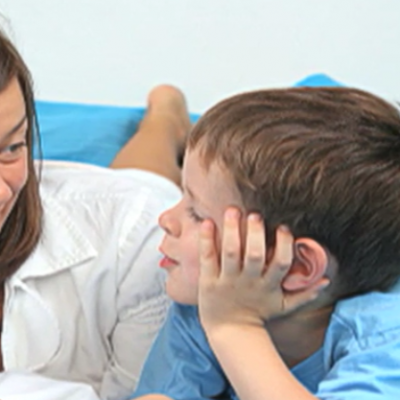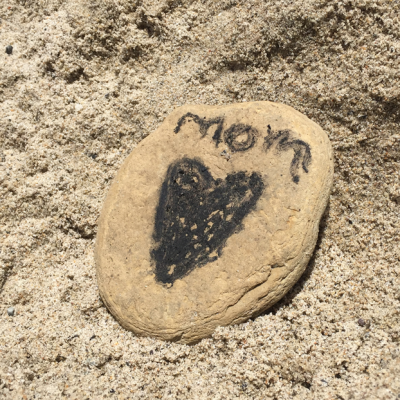Never Spank, Swat or Hit a Child: How Children Learn Best
Many parents are coming to grips with the fact that spanking their children doesn’t work. Spankings teach short-term lessons, but long-term violence and come with a host of potential undesirable outcomes in adulthood. Those who support spanking say it’s okay if it’s deliberate and methodical. “Never spank in anger,” they say. This message claims that hurting a child is acceptable as long it’s done calmly. But research (Straus 1999) shows that over time a parent who spanks tends to hit harder each time. When spankings lose the desired effect parents tend to be at risk for using too much force leaving children at risk for injury.
Many parents defend their right to spank because it provides them with an outlet for frustration and anger with their child – not because it’s effective way to improve their child’s behavior. There is never a right time or safe way to hit a child because acts of violence, by their very nature, tend to escalate as times goes on. I come from a dark past, and violent childhood and know that NO ONE EVER DESERVES TO BE HIT. EVER. Not a pet, not a spouse and especially not a child.
Hitting children destroys their self-esteem and the best development occurs in nurturing and violence-free environments
Remember when you were little and everything was so exciting to you? You may have felt that world was a fun place to be – life without judgment, responsibilities, just learning your role and value in life. During that time is when you probably learned the most. Kids have limited life experience, they don’t always know “what the right thing to do is.” Give them the benefit, they’re still little learners.
Early childhood is a very sensitive and critical time for brain development. Stress caused by fear of spanking can have a negative affect on the development and function of a child’s brain. It is during this period of great plasticity and vulnerability that many children are subjected to physical punishment. I don’t know any parent who would intentionally put their child at risk for abnormal brain development, however that is often what spankers do.
Spanking impairs the ability to learn and deteriorates school performance
Research states that spanking a child lowers their I.Q. When a child is in a calm and non-threatening state the brain is in its prime to learn. However, if spanking a child makes him or her feel angry or scared they become hyper vigilant and learning comes to a screeching halt. Children who are taught to fear regular spankings tend to live in a semi-agitated state that is not conducive to optimal learning (Perry, 1999).
Spanking sometimes teaches children that it is okay to hit others. Or when you love someone you hit them to make them listen.
Children see their parents as role models. If your child does what they’re told because of the spanking, the lesson you’ve taught is, “violence works.” And you can bet that she’ll learn from your actions, and as a result, use force to win in other situations. When your child grows up do you want them to discuss problems with their spouse or use force to settle conflict?
If you want to do everything within your power to prevent your child from continuing the harmful legacy of spanking when they’re a parent, guide gently, set appropriate limits and emotion coach as much as you possibly can. Stay away from the six common roadblocks – outlined in chapter one that make parenting challenging and ineffective and don’t ever spank.
Advice from a Religious Leader
“I have never accepted the principle of ‘spare the rod and spoil the child.’… I am persuaded that violent fathers produce violent sons…Children don’t need beating. They need love and encouragement. They need fathers to whom they can look with respect rather than fear. Above all, they need example.”
– Gordon B. Hinckley, President, The Church of Jesus Christ of Latter-day Saints, October 1994 General Conference.
Do you remember how you felt after you were hit? You probably felt anger, sadness, confusion, and may have even felt unloved. Although parents don’t intend for their child to feel these things most often they do. Many people say, “I was spanked and turned out just fine,” or “I deserved to be hit, because I was a bad kid.” The reason people make these statements and become defensive is because it’s painful to admit that their parents the ones who should have protected them did something terribly wrong. We all see our parents as the most important people in our lives and if we admit that they’ve done us wrong or are pathological, we too might be faulty or damaged goods. It’s a defense that protects us from feeling abandoned – so we defend our parents no matter what wrong they’ve done…It’s hard to admit, but it’s true.
As children become adults they adopt some of the positive qualities from their parents. If you were spanked and feel you turned out to be a good person, it’s not because of the spankings. Many of us who were spanked on occasion are great successful people – but it’s in spite of the spankings, not because of them.
What to do instead of spanking
There are better ways of teaching children how to be cooperative – Fear and aggression are not effective. The true meaning of the word discipline means to guide. Guidance means to teach. When we punish children, we leave out the guidance. Children learn good behavior by imitating good behavior. Children learn morals, values and compassion from their parents. To prepare your child to enter into a healthy adult life with valuable skills, practice teaching him or her how to negotiate, how to compromise, the value of self motivation and how to successfully and non-aggressively resolve conflicts.
Here are a variety of non-aggressive alternatives that parents can use to guide their children.
· Get in touch with your own ‘hot buttons’ and be sure you don’t take your anger and problems over some unresolved conflicts of your own out on your child.
· Take a grown-up ‘cool off’ time when you find yourself too angry to deal with your child
· Begin providing guidance and limit setting as early as infancy
· Keep communicating your words to your baby and young child
· Show more mild disapproval of undesirable behavior
· Discuss your feelings about what you see
· Acknowledge and validate your child’s feelings while setting limits
· Offer alternatives
· Redirect your child’s attention
· Be consistent and follow through (do what you say)
· Offer encouragement when your child follows through
· Offer a ‘thinking or cool down time’ – If your child is over three years old, have her sit with you and think about her actions and ask her what she can do differently next time.
· Offer solutions and ideas with your child – sometimes she may not know what to do and needs your guidance.
For more great parenting tips, check out Kimberley’s book at www.TheGoToMomsGuide.com.


